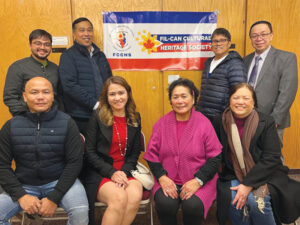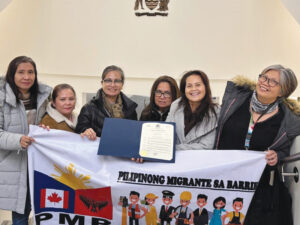It is your responsibility to ensure that your PR card is still valid when you return from travel outside Canada, and to apply for a new PR card when your current card expires.
A permanent resident is someone  who has been given permanent resident status by immigrating to Canada, but is not a Canadian citizen. Permanent residents are citizens of other countries.
who has been given permanent resident status by immigrating to Canada, but is not a Canadian citizen. Permanent residents are citizens of other countries.
A person in Canada temporarily, like a student or foreign worker, is not a permanent resident.
Refugees who are resettled from overseas become permanent residents through the Government- Assisted Refugee Program or the Private Sponsorship of Refugees Program.
Someone who makes a refugee claim in Canada does not become a permanent resident at that time. To become one, the Immigration and Refugee Board must first approve their claim. Then, they must apply for and get permanent resident status.
THE PERMANENT RESIDENT CARD (PR CARD)
If you travel outside Canada, the permanent resident card is your proof that you are a permanent resident of Canada. If you leave Canada, you will need this card to re-enter the country on a commercial vehicle, like an airplane, boat, train or bus.
Canadian permanent residents need to show their permanent resident card when travelling to Canada in order to prove their permanent resident status. Permanent residents who do not have a PR card, or who are not carrying their PR card when travelling outside the country, will need to obtain a Permanent Resident Travel Document before returning to Canada by air mode in order to comply with eTA requirements.
If your permanent resident card expires, it does not mean you have lost permanent resident status.
WHAT PERMANENT RESIDENTS CAN DO
As a permanent resident, you have the right to:
• get most social benefits that Canadian citizens receive, including health care coverage,
• live, work or study anywhere in Canada,
• apply for Canadian citizenship,
• protection under Canadian law and the Canadian Charter of Rights and Freedoms.
You must pay taxes and respect all Canadian laws at the federal, provincial and municipal levels.
WHAT PERMANENT RESIDENTS CANNOT DO You are not allowed to:
• vote or run for political office,
• hold some jobs that need a high-level security clearance.
TIME SPENT LIVING IN CANADA
When you are a permanent resident, you can live outside of Canada, but must live in Canada for at least two years in a five-year period. If you live outside of Canada for longer, you may lose your permanent resident status.
For more information on how long you have to live in Canada, see Appendix A: Residency obligation of the PR card application package.
LOSING YOUR PERMANENT RESIDENT STATUS
Losing your permanent resident status does not happen automatically. You cannot lose your permanent resident status simply by living outside of Canada long enough that you don’t meet the residency requirement. Unless you have gone through an official process, you have not lost or given up your permanent resident status, even though you may not be eligible to return to Canada as a permanent resident.
You may lose your permanent resident status if:
• An adjudicator determines that you are no longer a permanent resident following an inquiry
• A visa officer determines you do not meet the required residency when you apply for a permanent resident travel document or temporary resident travel document.
You may lose your permanent resident status in one of the ways described above if:
• you do not live in Canada for two out of five years;
• you are convicted of a serious crime and told to leave Canada; or
• you become a Canadian citizen.
You do not lose your permanent resident status if your PR card expires.
VOLUNTARILY GIVING UP (RENOUNCING) PERMANENT RESIDENT STATUS
Losing your permanent resident status does not happen automatically.
There may come a time when you no longer want to be a permanent resident of Canada. If so, you can apply to voluntarily give up (renounce) your permanent resident status.
For example you:
• know you have not met your residency obligations by being outside of Canada for a long period of time, and
• would like to visit Canada, and
• do not want to wait for a visa officer to do a formal assessment of your permanent resident status
OR
• would like to avoid processing delays at the Port of Entry
You may not be able to enter Canada until your permanent resident status is resolved either by receiving a Permanent Resident Travel Document or by voluntarily giving up your permanent resident status.
If you know you no longer want to be a permanent resident of Canada, you can apply to voluntarily give up your permanent residence status.
** Strictly taken from cic website A Canadian Certified Immigration
Consultant, Certified Senior Advisor and a Notary Public in the City of Burnaby, Editha Corrales Nelson’s preferred areas of practice are Powers of Attorney, Wills Preparation, International Legal Documents, Name Changes, Affidavits, Letters of Invitation, Statutory Declarations, Drafting of Business Contracts and other notarial services. For an appointment, please call: 604-777-2757.
The following should not be construed as providing legal advice and information in this column is intended only as a general guide and should not be applied to specific circumstances without further consultation. For more information on the subject, contactEditha Corrales Nelson at 604-777- 2757







